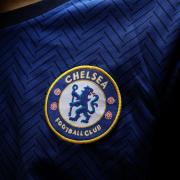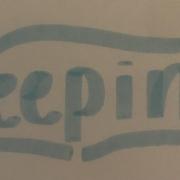
Martin Cross is an Olympic gold medallist who lives in the local area and teaches history at Hampton School. Throughout his whole life, he has had a huge passion for rowing and has continued to get involved as much as possible in the sport even at the age of 65. I had the amazing opportunity to interview him on his past rowing experiences including the gold medal that he won in the 1984 Olympics.
‘How did you first get into rowing and how old were you when you started?’
‘I was 13 years old when I first started rowing and my dad introduced the sport to the local school. I decided to pick up the sport as I wasn’t that good at anything else to be honest. When I first started at the local authority in Barnes Elms, I found it difficult but soon developed an interest and passion for the sport. I rowed more often than every other person in the local authority. Of course I improved and by the age of 16, I realised that this was a sport I could really excel at.’
’Did you ever imagine that you would get to the Olympics?’
‘Well Bart I had an an olympic rower as my actual teach and this made me imagine that I could make it to the Olympics. It motivated me as I was able to see how someone had achieved it themselves. Furthermore, they were an ordinary person like me and so I started to become motivated to push myself and achieve the same thing that they had.’
‘Please could you tell me about the extraordinary race with Steve Redgrave when you won a gold medal in the Olympics in 1984.’
’That particular day in a coxed four, we had a huge amount of pressure and were the favourites as we had set a world record in the race before. Steve and I were up against the American crew and the fact that it was foggy meant that visibility levels were low. At the start of the race, we trailed behind but then with every ounce of strength that we had left, Steve and I managed to just overtake the American crew with 20 strokes left and amazingly we won the gold medal.’
‘What sort of training and diet did you have to have in order to be ready for this?’
‘I tried to aim to have about three sessions on the water every day down at Molesey but I had to balance this with being a history teacher as well which at times I have to admit was difficult. However, my colleagues were very supportive of me and sometimes helped to take my lessons so that I could row instead. Regarding diet, I tried to have as many carbohydrates as I could and overall ate around 5000 calories each day. Rowing burns up a lot of energy and so it is important to eat well. However, I strongly feel that nutrition and diet has become more important in rowing and other sports nowadays than it was 20 years ago.’
‘Where is the gold medal now?’
‘In a safe place at home where I can easily access it.’
‘How has rowing changed in the past 20 years and how do you see it changing in the future?’
‘To be honest with you Bart, I strongly feel that the global interest in rowing has been strengthened by the Olympics. However at the moment, rowing could be under threat due to the fact that there are many other different types of sports which are more eye grabbing to watch. Although very positively, I think that the increase in the amount of rowing machines in schools has meant that more school pupils are able to try rowing as a sport. In the future, I believe that coastal rowing could possibly become an event in the Olympics of 2024.’
’Lastly, do you think that rowing has changed you at all as a person?’
‘Interesting question, I definitely feel that rowing has helped to give me the motivation And determination to achieve goals in life. It has also enabled me to become more connected with other people in the world of sport. Also, growing up at school, I was often seen as quite geeky and so rowing has definitely helped me to become a much broader person in general.’



























